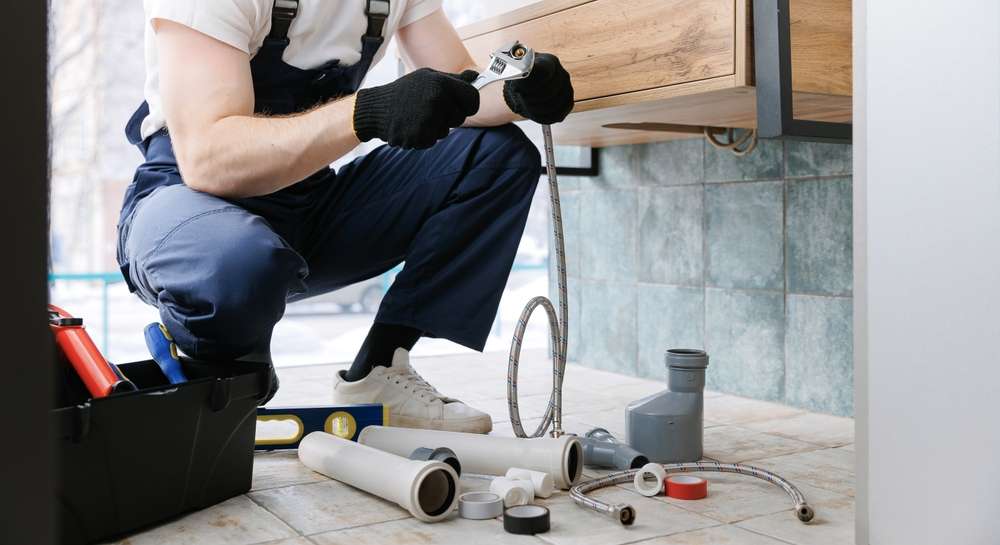Plumbing: A Lucrative and Essential Trade Career
Discover the promising world of plumbing, a vital trade that offers financial stability, personal fulfillment, and endless opportunities for growth. Learn how this hands-on profession allows you to become an indispensable problem-solver, ensuring the smooth operation of water systems in homes and businesses alike. Explore the path to becoming a skilled plumber and uncover the rewards of this dynamic, in-demand career.

Embarking on a Plumbing Career: Skills and Responsibilities
A career in plumbing demands a diverse skill set and a willingness to tackle various responsibilities. As a plumber, you’ll need to master:
- Interpreting complex blueprints and adhering to local building regulations
- Conducting thorough inspections and tests on plumbing systems
- Diagnosing issues and implementing effective solutions
- Utilizing an array of tools, from basic hand instruments to advanced machinery
- Providing accurate cost estimates for plumbing projects
- Ensuring all work meets safety standards and building codes
The profession often requires physical prowess, manual dexterity, and the ability to navigate confined spaces. Plumbers may find themselves working in various environments, including residential homes, commercial establishments, and industrial facilities, both indoors and outdoors.
Pathway to Becoming a Professional Plumber
The journey to becoming a licensed plumber involves a combination of formal education and practical experience:
- Obtain a high school diploma or equivalent
- Enroll in plumbing courses at a vocational school or community college
- Secure an apprenticeship position, typically lasting 4-5 years
- Complete the required on-the-job training hours and classroom instruction
- Successfully pass your state or local licensing examination
- Consider pursuing specializations or additional certifications for career advancement
Apprenticeships play a crucial role in plumber training. During this period, you’ll work under experienced professionals, honing your skills while earning a wage. Many apprenticeship opportunities are available through trade unions and industry associations.
Job Market Outlook for Plumbers
The employment landscape for plumbers remains promising. The U.S. Bureau of Labor Statistics projects a 5% growth in jobs for plumbers, pipefitters, and steamfitters from 2020 to 2030, aligning with the average growth rate across all occupations. This steady demand is driven by:
- Ongoing need for plumbing services in residential and commercial sectors
- The critical role of plumbing in maintaining public health and safety
- Increased focus on water conservation and efficient plumbing systems
- The difficulty in outsourcing or automating plumbing tasks
As you gain expertise, opportunities for career progression may include supervisory roles, entrepreneurship, or specialization in niche areas such as gas fitting or fire sprinkler systems.
Essential Skills for Plumbing Success
To thrive in the plumbing industry, you’ll need to develop a blend of technical prowess and interpersonal skills:
- Technical expertise: Comprehensive understanding of plumbing systems, blueprint interpretation, and tool proficiency
- Analytical thinking: Ability to diagnose complex issues and devise effective solutions
- Physical fitness: Endurance and strength for handling heavy materials and working in challenging positions
- Mathematical aptitude: Skill in calculating measurements, angles, and material requirements
- Effective communication: Clear articulation with clients and team members
- Customer service orientation: Professional interaction with customers in various settings
- Meticulous attention to detail: Ensuring precision and safety in all tasks
- Efficient time management: Ability to juggle multiple projects and meet deadlines
Staying current with evolving plumbing technologies and regulations through continuing education is crucial for long-term success in this field.
Weighing the Advantages and Challenges of a Plumbing Career
Like any profession, plumbing comes with its own set of benefits and potential drawbacks:
Advantages: - Stable employment with consistent demand - Strong earning potential, particularly with experience - Opportunities for self-employment and entrepreneurship - Satisfaction derived from problem-solving and helping others - No requirement for a traditional four-year college degree
Challenges: - Physically demanding nature of the work - Potential for irregular hours and emergency call-outs - Exposure to occasionally unpleasant working conditions - Risk of injury if proper safety protocols aren’t followed
Plumber Salary Expectations
Earning potential in the plumbing field can vary based on factors such as geographic location, years of experience, specialization, and employment status. Here’s a general overview of plumber salaries in the United States:
| Career Stage | Annual Salary Range |
|---|---|
| Entry-Level | $33,000 - $45,000 |
| Mid-Career | $45,000 - $65,000 |
| Experienced | $65,000 - $90,000 |
| Master Plumber | $70,000 - $120,000+ |
Note: These figures are approximate and subject to change. Factors such as overtime pay, bonuses, and the ability to take on additional work if self-employed can significantly impact earnings. Some plumbers in high-demand areas or with specialized skills may earn even more than the ranges listed.
Plumbing offers a promising career path for individuals who enjoy practical work, problem-solving, and community service. With proper training, skill development, and dedication, it can provide a stable and fulfilling profession. As with any career decision, it’s crucial to research specific requirements and opportunities in your area and evaluate your personal interests and strengths before pursuing this path.
Please note that any pricing information or cost estimates mentioned in this article are based on the most recent data available but may fluctuate over time. It’s advisable to conduct independent research before making any financial decisions.






